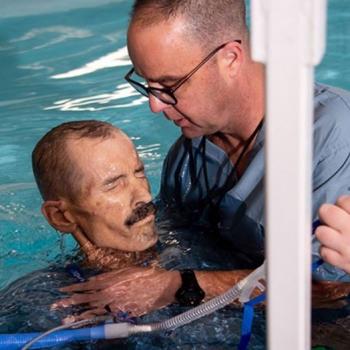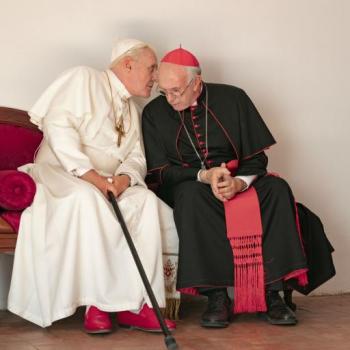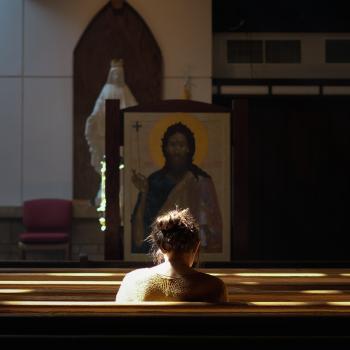There’s a lovely remembrance of first encountering “Les Miserables” — the musical and the book — by Rev. Charles Klamut, in this week’s issue of AMERICA—and he concludes with this poignant epiphany:
I read Les Misérables in a week. It was the perfect book at the perfect time, with soul-shaking impact. For a long time afterward, I went over and over it in my mind and in my heart.
One day I had a revelation: Monseigneur Bienvenu never knew! The heroism of Valjean’s subsequent life was unknown to the bishop. Fantine, Cosette, Marius, Eponine, the Thénardiers, Gavroche, Javert, the barricades, the students, the wedding—all unknown. The bishop sent Valjean off with his silver and a promise, never to see or hear from him again. For all he knew, Valjean went back to his old ways. And yet it did not seem to matter. He treated Valjean as he treated everyone: as Christ would. Bienvenu was the unknowing mover of all that was to follow. But for his act of mercy toward Valjean, the whole beautiful story would not have been.
This was when it hit me. I thought of the bishop, and the impact he made and what his priesthood meant. I can remember praying, “Lord, if that’s what it’s about, if my life can do that…sign me up.” And the rest, as they say, is history.
I’m reminded of this prayer, often attributed to Oscar Romero, but actually written by the late Bishop Ken Untener:
We accomplish in our lifetime only a tiny fraction of the magnificent enterprise that is God’s work. Nothing we do is complete, which is a way of saying that the Kingdom always lies beyond us.
No statement says all that could be said.
No prayer fully expresses our faith.
No confession brings perfection.
No pastoral visit brings wholeness.
No program accomplishes the Church’s mission.
No set of goals and objectives includes everything.
This is what we are about.
We plant the seeds that one day will grow.
We water seeds already planted, knowing that they hold future promise.
We lay foundations that will need further development.
We provide yeast that produces far beyond our capabilities.
We cannot do everything, and there is a sense of liberation in realizing that.
This enables us to do something, and to do it very well.
It may be incomplete, but it is a beginning, a step along the way, an opportunity for the Lord’s grace to enter and do the rest.
We may never see the end results, but that is the difference between the master builder and the worker.
We are workers, not master builders; ministers, not messiahs.
We are prophets of a future not our own.












